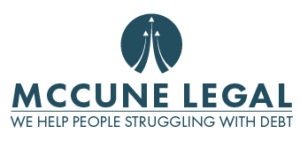Chapter 7 and Chapter 13 are two different types of bankruptcy that individuals can file for in the United States. The main differences between the two are:
Eligibility: To be eligible for Chapter 7 bankruptcy, an individual must pass a means test, which compares their income to the median income of their state. If their income is below the median, they are eligible for Chapter 7. If their income is above the median, they may still be eligible for Chapter 7 but will have to pass additional requirements. Chapter 13 bankruptcy does not have a means test, so anyone can file for it regardless of their income.
Discharge of debt: In a Chapter 7 bankruptcy, most unsecured debts, such as credit card debt and medical bills, are discharged, meaning that the individual is no longer responsible for paying them. However, some types of debts, such as student loans, taxes and child support, are not dischargeable. In a Chapter 13 bankruptcy, the individual is required to repay a portion of their debts over a period of 3 to 5 years, and at the end of the repayment period, the remaining unsecured debt is discharged.

Property: In a Chapter 7 bankruptcy, the individual may be required to liquidate some of their assets in order to pay their creditors, but they can keep certain exemptions such as a primary residence and personal property. In a Chapter 13 bankruptcy, the individual is allowed to keep all of their assets, but they must use their future income to repay their creditors over the 3 to 5 year period.
Credit Score: A Chapter 7 bankruptcy will stay on an individual’s credit report for 10 years, and a Chapter 13 bankruptcy will stay on for 7 years.
Timing: A Chapter 7 bankruptcy case typically takes about 4 to 6 months to be completed, and a Chapter 13 bankruptcy case can take 3 to 5 years.
Both types of bankruptcy can have a significant impact on an individual’s credit score, and both types have their own pros and cons. The best type of bankruptcy for an individual will depend on their specific financial situation. It is advisable to consult with a bankruptcy attorney to determine the best option.

